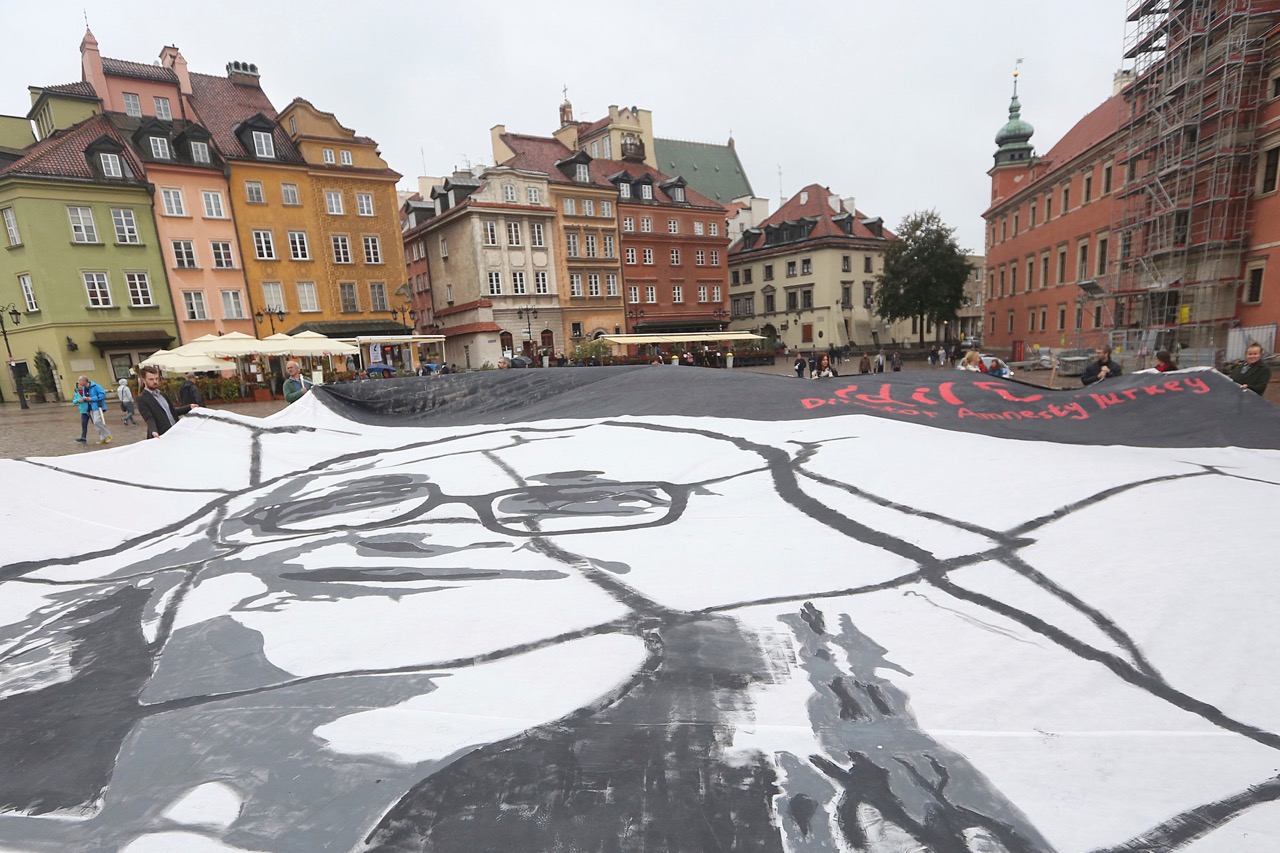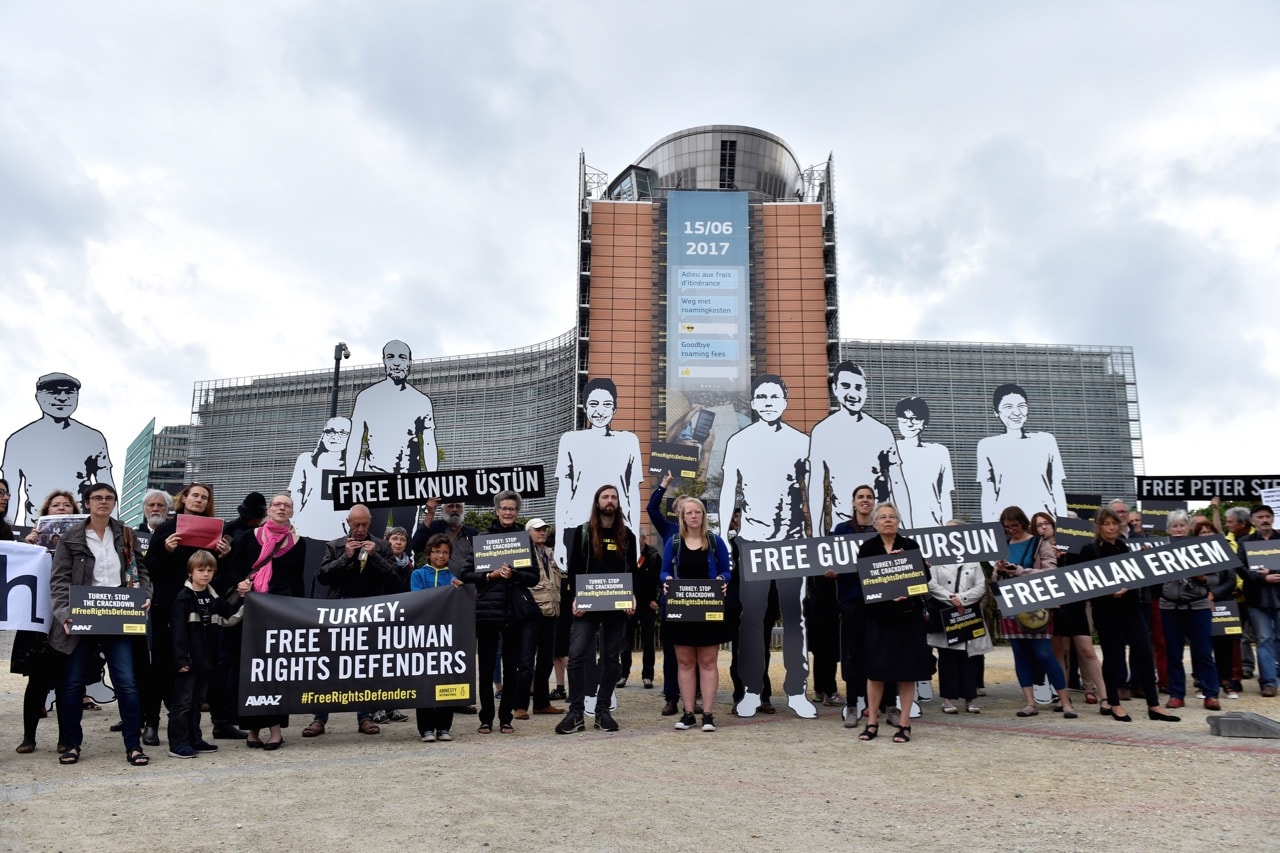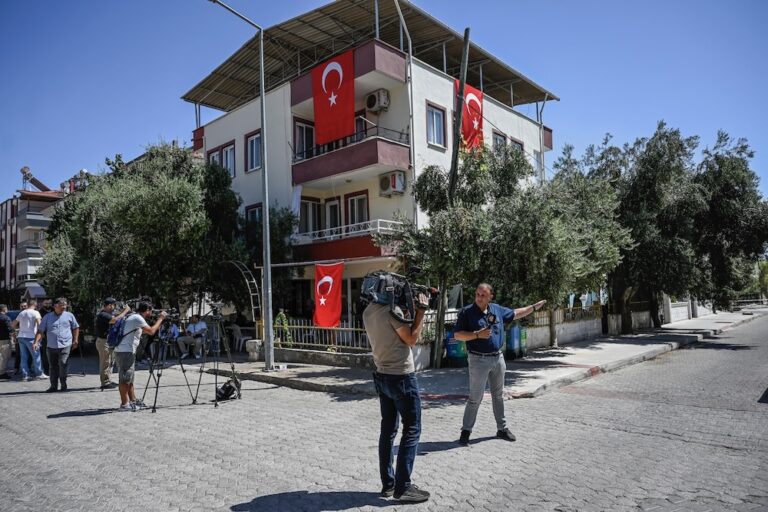The Prosecutor's Office has drafted the indictment for rights advocates from various organisations who were detained during a digital security workshop on July 5 in Büyükada.
This statement was originally published on bianet.org on 9 October 2017.
Prosecutor Can Tuncay from the İstanbul Chief Prosecutor’s Office, Terror Crimes Department, has completed the 17-page indictment in the case of the rights advocates from various rights organizations who were detained during a training workshop on July 5, 2017 in Büyükada and were later arrested.
According to the indictment submitted to the İstanbul Heavy Criminal Court, rights advocate Taner Kılıç, an executive from Amnesty International’s Turkey Bureau, faces 7.5 to 15 years in prison on the charge of “being a member of the armed Fethullahist Terrorist Organization (FETÖ)”, and other rights advocates are facing 5 to 10 years in prison on charges of “aiding an armed terrorist organization”.
In the bill of indictment, it has been stated that Taner Kılıç had organized the meeting in Büyükada, yet could not attend the meeting as he had been detained in İzmir for using “ByLock”, an encrypted communication software, used among members of the Gülen Community.
The indictment also says, “It has been determined, that a march called ‘Justice’ [which according to the indictment is also linked to the rights advocates] was aimed at [inciting] violent events that could result chaos in the society like the Gezi Park incidents”.
The rights advocates who are facing a prison sentence according to the indictment are:
Taner Kılıç, Amnesty International Turkey Representative
Idil Eser, Amnesty International Turkey – Turkey Director
İlknur Üstün, Women’s Coalition;
Günal Kurşun, lawyer, Human Rights Agenda Association;
Nalan Erkem, Lawyer, Citizens’ Assembly;
Nejat Taştan, Equal Rights Watch Association;
Özlem Dalkıran, Citizens’ Assembly (formerly called Helsinki Citizens Association)
Şeyhmuz Özbekli, lawyer, former activist of Mazlum Der
Veli Acu, Amnesty International Executive Board Member
Ali Gharavi – an IT consultant, citizen of Sweden
Peter Steudtner – a non-violence and well-being trainer, citizen of Germany
Background
On July 5, 10 rights advocates from various rights organizations were taken into custody during a training workshop on the “Protection and digital security of human rights advocates” in Büyükada, one of the Prince Islands in İstanbul. Nothing was heard from the detained rights defenders for 30 hours.
It was later revealed that the detention warrant had only been issued five hours after the advocates had already been taken into custody.
On July 11, an order for an additional seven days of detention was issued against the rights advocates.
On July 17, the rights advocates were referred to court for arrest on charges of “committing crimes on behalf of an illegal organization as non-members”, and “being a member of an illegal organization”.
On July 18, Eser, Dalkıran, Kurşun, Acu, Gharavi and Steudtner were arrested. Erkem, Üstün, Taştan and Özbekli were released on probation and an international travel ban was imposed on them.
On July 21, the prosecutor objected to the release of the four rights advocates and a detention warrant was issued for them. Detained from their homes, Üstün and Erkem were arrested on July 23.
On July 25, Taştan and Özbekli were released on probation with a travel ban.
Özlem Dalkıran, Peter Steudtner, Ali Gharavi, Veli Acu, Günal Kurşun, İdil Eser and Nalan Erkem are still being kept in Silivri No. 9 F-type Prison and İlknur Üstün is behind bars in the Sincan Closed Prison for Women.
The Turkish Penal Code
Forming organized groups with the intention of committing a crime
ARTICLE 220 (1) Those who form or manage organized groups to execute acts which are defined as an offense by the laws, are punished with imprisonment from two years to six years unless this organized group is observed to be qualified to commit an offense in view of its structure, quantity of members, tools and equipment held for this purpose. However, at least three members are required for the existence of an organized group.
(2) Those who become a member of an organized group with the intention of committing a crime, are punished with imprisonment from one year to three years.
(3) In case the organized criminal group is equipped with arms, the punishment to be imposed according to the above subsections is increased from one fourth to one half.
(4) In case of the commission of a crime within the frame of activities of an organized group, the offender is additionally punished for this crime.
(5) The directors of the organized criminal group are additionally punished for all the offenses committed within the frame of activities of the organized group.
(6) Any person who commits an offense on behalf of an organized criminal group without being a member of that group is additionally punished for being a member of the organized group.
(7) Any person who knowingly and willingly helps an organized criminal group, although this does not take place within the hierarchic structure of the group, is punished as if he is a member of the organized group.
(8) Any person who makes propaganda by praising the organized criminal group and its objective is punished with imprisonment from one year to three years. The punishment to be imposed is increased by one half in case of commission of this offense through the press and broadcast organs.
Armed Organisation
ARTICLE 314 (1) Any person who establishes or commands an armed organisation with the purpose of committing the offences listed in parts four and five of this chapter, shall be sentenced to a penalty of imprisonment for a term of ten to fifteen years.
(2) Any person who becomes a member of the organisation defined in paragraph one shall be sentenced to a penalty of imprisonment for a term of five to ten years.
(3) Other provisions relating to the forming of an organisation in order to commit offences shall also be applicable to this offence.

Members of Amnesty International stage a demonstration demanding the release of Idil Eser, the jailed Turkey director of the human rights organisation, in Warsaw, Poland, on 20 September 2017AP Photo/Czarek Sokolowski



